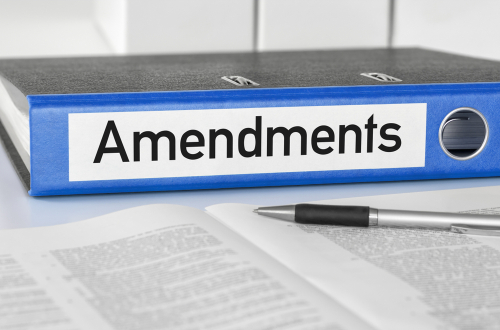
Propertymark says the controversial Renters Reform Bill still misses the mark, despite a string of amendments made to it as it left the House of Commons on its passage through Parliament.
Timothy Douglas, Head of Policy and Campaigns at Propertymark, says: “The Bill has been strengthened since it was first introduced but still misses the mark in providing the right level of fairness and flexibility for landlords and tenants and improved competency standards for letting agents.
“It is disappointing that the UK Government continue to not recognise the benefit of allowing tenants and landlords to enter a fixed term tenancy where it is mutually beneficial to both parties. This will impact large parts of the market including students who rent.
“The legislation as a whole must help to increase the supply of homes to rent and not reduce the number, so Propertymark will continue to push for measures as the Bill goes to the House of Lords. It is important that it maintains the flexibility and choice that the private rented sector has provided over recent decades. The consequences of not doing so would be detrimental to landlords, tenants and agents alike.”
Having gone through the Commons it now moves to the House of Lords. It will follow a process similar to that which took place in the Commons, namely:
- First reading: The bill arrives in the Lords. This stage is a formality where the bill name is read in the chamber;
- Second reading: The main debate on the purpose and key areas of the bill. At this stage members discuss any concerns or specific areas where they think changes may be needed. There are usually no votes (divisions) at this stage;
- Committee stage: Detailed line-by-line scrutiny of the text with amendments (suggested changes). Members start at the front of the bill and work through to the end. Votes may take place to decide whether to make the changes. Any member may take part and there is no time limit;
- Report stage: A further opportunity to examine the bill and make changes. More amendments are debated and further votes take place to decide whether to make the changes;
- Third reading: A ‘tidying up' stage, aiming to close any loopholes. A final chance for amendments and votes;
- Consideration of amendments: If the Lords has made changes to the draft law, it is sent to the Commons to agree. The Commons may accept the Lords change, make its own change in its place, or reject it. Any Commons changes are sent back to the Lords. There may be several rounds of this process, known as ‘ping pong’;
- Royal Assent: When both Houses have agreed the text, the bill is approved by the monarch and becomes a law or ‘Act of Parliament'
No date has yet been set for these stages.













%20-%20IMAGE%20Client%20Accounting%20%E2%80%93%20what%20are%20your%20options.jpg)

.png)

.jpg)








Join the conversation
Jump to latest comment and add your reply
Well done to Propertymark for seeking that essential change to the Bill to stop the complete destruction of the private rental sector.
At the moment, it isn't even certain that the ability to give notice to students will remain. That ground may be reconsidered in the not too distant future.
Please login to comment